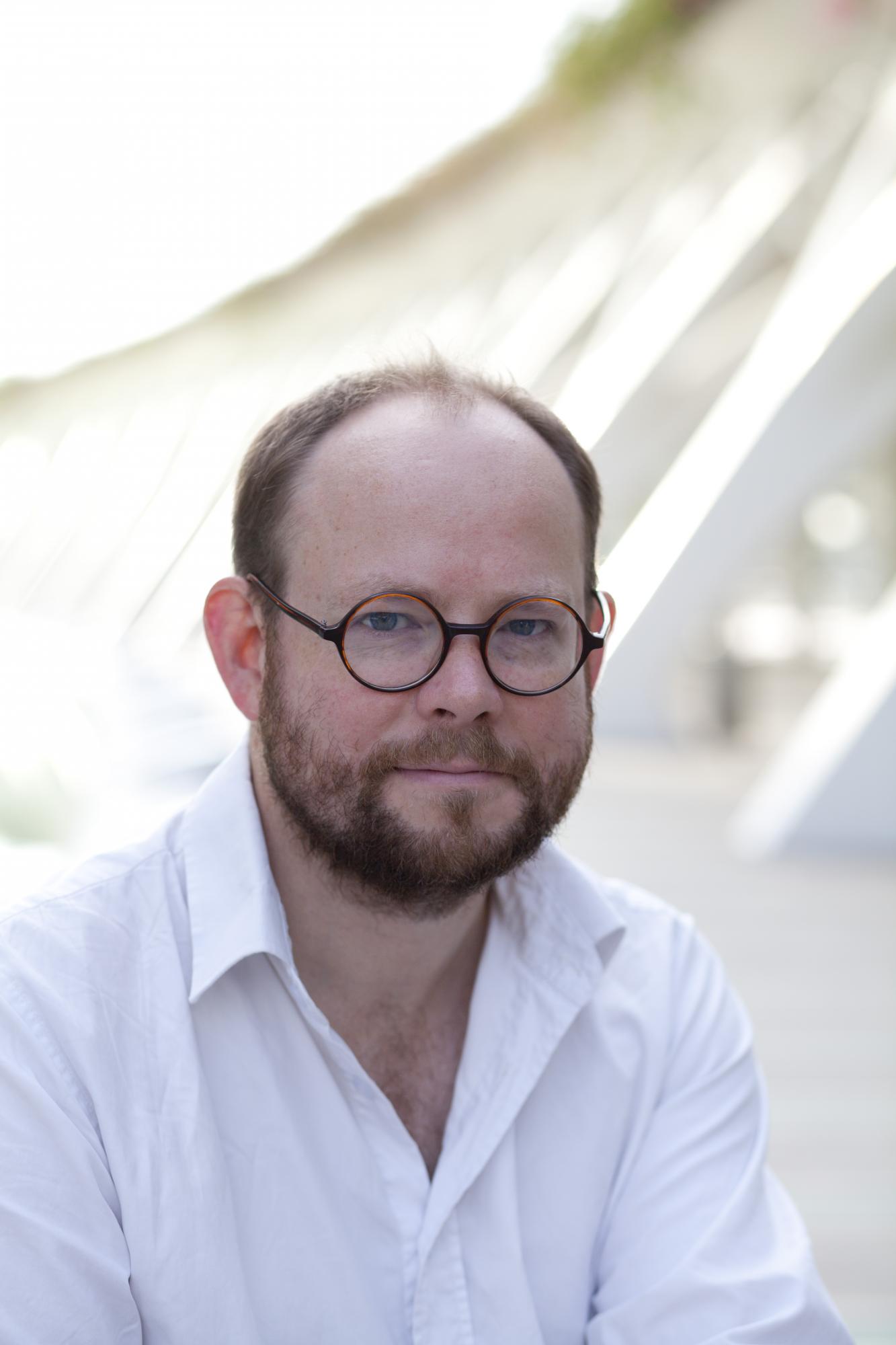From Food Operas to Video Game Scoring, Professor Ben Houge Makes Interdisciplinary Connections through Music

Ben Houge, professor at Berklee's campus in Valencia, Spain
Producing “food operas” in a Boston area restaurant. Teaching Advanced Video Game Scoring to graduate students at Berklee’s campus in Valencia, Spain. Composing choral music while researching Spanish Renaissance composers. It may sound like a disjointed life for Berklee professor Ben Houge, but he would beg to differ: take an interdisciplinary approach, he says, and music connects everything.
Houge, who teaches in the Music Production, Technology, and Innovation graduate program at Berklee’s Valencia, Spain campus, tries to get his students to look beyond the obvious. “We’re not just teaching how to use a piece of software, but how to make the connections between disciplines that will allow people to innovate.”
The Perfect Pairing: Music and Food
Recently, Houge gave a talk at Oxford University on his “food operas,” which he presented in 2012 and 2013 at Harvard University and at Bondir restaurant in Cambridge. The “food opera” concept is that each diner enjoys an individual musical accompaniment to each dish that is also harmonious with the whole community in the room.
“Essentially, I’m using techniques from my video game career to respond to the real-time events in the dining room,” says Houge, who spoke by Skype from the Mediterranean campus, where the Berklee “beach” is a sandy one, and spring is already far advanced.
Each dish has its own score, determined by computer algorithms, and the 30 speakers deployed in the restaurant were networked so that all the sound was coordinated in harmony and rhythm.
“I haven’t seen a lot of projects that have the sense of community that ours had,” he says, adding that although diners continued conversing, they were aware of a restaurant-wide musical experience.
Meanwhile, Houge is envisioning new ways to connect music to new experiences. He wants his students and others to “think of music not just as entertainment, but as enriching and even ennobling life.” He says that “sound plays a huge role” in food, pointing to studies that show food tastes 10 percent sweeter with certain sounds or music. What if playing certain music helped make food delicious even when sugar was reduced? That, he says, could have implications for health and wellness.
Responsive Music and Video Games
Houge, who grew up in the Midwest, California, and in Africa as the son of missionaries, began writing video game music after graduating from St. Olaf College in Minnesota, where he wrote choral music, something he continues with today, finding a “real grounding” in it. After college, he worked for pioneering computer game company Sierra on the West Coast and then for the French developer Ubisoft in Shanghai, where he met his wife, furniture designer Jutta Friedrichs. They moved to Boston and in 2010 he began teaching at Berklee while continuing to consult in the gaming industry.
Interdisciplinary connections fostered by music are important to Houge in his teaching, particularly when it comes to video games.
“Video games are a young field,” he says, and the idea of working in that industry is popular. However, many students think they know how video games work because they’ve played a lot of them, and he says it can be “a challenge to shake them out of what they think they know.”
Houge has spent almost 19 years developing video game music, finding ways to structure music to respond to users’ unpredictable actions in the games. The same technology that enables computers to respond to players’ actions with music also enables responsive interactive experiences in the real world such as these food operas and other projects.
New Connections and Endless Possibilities
One of those projects occurred in November, when Houge and Friedrichs collaborated with British dance company New Movement Collective on a dance, “Please Be Seated.” In January, he presented his piece setting Greek poetry for voice and mobile devices at the first Web Audio Conference in Paris, cohosted by Mozilla and the French electronic music research institute IRCAM. He has also collaborated with a colleague in matching wines to music at an Oxford wine bar, and last October he presented at the Game Developers Conference in Shanghai on Optimizing Audio for Mobile Development.
Currently, Houge is planning another food opera in a Spanish restaurant as part of an Opera Technology Workshop class in which students will learn how to program algorithmic musical textures to accompany dishes in real time. He’s also working on an app to allow a cook or a diner to match spices and flavors to music. Having recently attended a culinary conference in San Sebastian, Spain, on the connections among gastronomy, art, and technology, he envisions a time when music can enrich your jog, meal, or any other daily activity. For Houge, the possibilities of connecting through music are endless.
